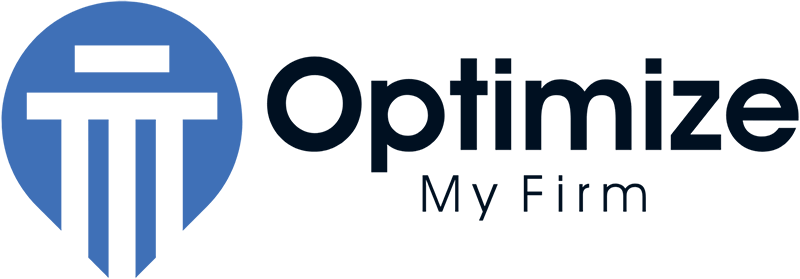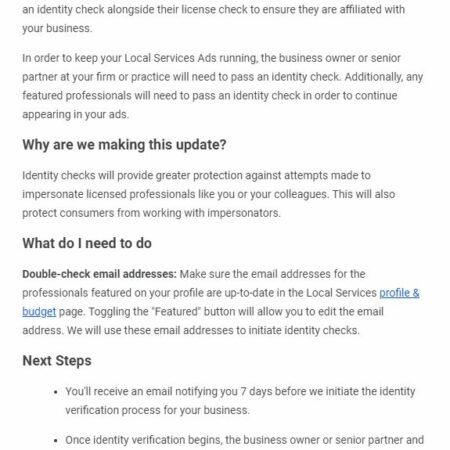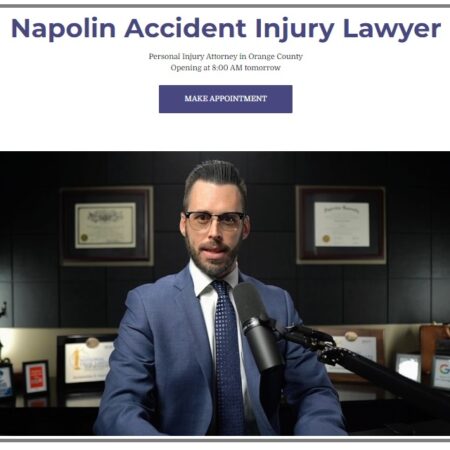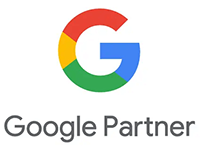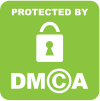There are many conflicting opinions in the legal world as to whether a law firm needs a website. Neilson Media Research says that about 75% of all people in the United States perform an online search to look for a lawyer. That single piece of information should be sufficient for any solo practitioner or law firm in arriving at a decision on whether they should have a website. Here are some other reasons why our society relies heavily on lawyers having websites:
- Accessibility: A potential new client can contact you or your law firm 24 hours a day. This puts you on equal footing with your competition.
- Experience and Credibility: A thoughtful and professionally developed website can show that you have resolved legal issues like those that your users are confronted with. They’ll know that you’re knowledgeable and articulate on their issues. Other law firms will learn that too.
- Convenience: Readers can obtain appropriate information easily, quickly and from anywhere. Information is provided about your law firm before a potential client ever makes an appointment.
- The Competitive Edge: When was the last time that used a phone book? Do you even have an ads in one or more phone books anymore? A website will reach out anywhere, not just in your local business area. There is no longer a need for four ads in four different phone books.
Internet Ethics Compliance Rules:
The number of attorneys and law firms that use the internet to advertise their services has put compliance with state ethics rules on the radar screens of state attorney regulatory commissions. Regardless of that fact, website developers and law firm marketing companies often fail to comply with state rules. In some cases, a website developer in one state built a website for an attorney or law firm 1,000 miles away. There’s nothing inherently wrong with that. What’s obvious in some of those situations is the fact that the developer failed to comply with state advertising ethics rules. Then, the attorney or law firm never even looked at the website or regulatory commission rules on internet advertising before the website was up and running. Unfortunately, the lawyer didn’t stay current on ethics rule updates that didn’t affect his or her law firm until now. Why should a lawyer or law firm do that when it never had a website anyway? Then, the letter from the state attorney regulatory commission comes.
ABA Model Rule 7.1
The American Bar Association (ABA) has its own model ethical rules that it publishes. Most states adopted ABA Model Rule 7.1 in one form or another. The rule states “A lawyer shall not make a false or misleading communication about the lawyer or lawyer’s services. A communication is false or misleading if it contains a material misrepresentation of fact or law, or omits a fact necessary to make the statement considered as a whole not materially misleading.” This rule is abundantly clear and unequivocal that lawyers cannot make statements that are dishonest or deceitful about themselves or their services. Although seemingly simple, a Rule 7.1 misleading statement or omission in one state might not be determined to be misleading in another state.
ABA Model Rule 7.2
As per ABA Model Rule 7.2, a lawyer can communicate information as to the legal services that he or she offers through any media. Other than costs for advertisements, legal service plan charges, payment for a law practice, referral agreements with the client’s knowledge and consent or nominal gifts, a lawyer cannot pay compensation for referrals. There’s nothing complicated about this part of the rule. Don’t compensate non-lawyers for referrals.
Specialists
Under Rule 7.2, a lawyer is prohibited from stating or implying that he or she is a specialist in a particular area of law without being appropriately certified and disclosing the certifying body. Finally, communications made under Rule 7.2 are required to include the name and contact information of at least one lawyer or law firm that is responsible for the communication. There’s nothing mystical about this part of Rule 7.2 either. If you’re going to say you’re a specialist, disclose who certified you, and give the public a name, address, email address and a phone number.
One Step Forward and Two Steps Back:
Once a lawyer or law firm decides to take that step to go digital, they start complaining about the ethical rules or lack of rules in connection with their websites and communications. One of the common complaints is that some ethical rules create legal barriers that impair or prohibit fast-paced innovation and competition. The various state regulatory commissions seem to place restrictions on the legal profession that do little or nothing to protect the general public. That results in obstruction of the legal profession’s efforts to benefit people in need of legal services.
Succinct Uniformity:
The inconsistent patchwork of lawyer and law firm advertising rules across the country is in serious need of simplification into unambiguous, uniform and consistent rules that focus on the integrity of the profession, the truth and the best interests of the public. The public would be informed and educated on legal issues and solutions to them, and the legal profession could flourish as a whole.
Bates vs. Arizona State Bar:
Pivotal to the regulation of attorney advertising is the false assumption that advertising demeans the integrity of the legal profession. The ghost of the prohibition against legal advertising apparently remains since the decision more than 40 years ago in Bates vs. Arizona State Bar. That case was decided in 1977. That’s the date on the legal timeline when legal advertising was held to be partially protected by the First Amendment, and attorney advertising increased exponentially.
Accessibility:
Nearly all members of the general public don’t have the time or the background necessary to use a law library. They have some form of access to the internet though, and its much more convenient and easy to use. Given those considerations, law firm websites are resources that members of the general public can refer to in order to determine whether they have a legal problem and how to address it. The legitimate objectives of integrity and truthfulness can effectively be met without restricting access to information. The possibility of inexpensive and expedient solutions for consumers who might be in need of a lawyer can also be met.
Permission to Advertise in Florida:
Technology is outpacing legal ethics rules by light years. By the time that a proposed rule makes it from committee to implementation, more than two years are likely to pass. Under the current procedures, published legal ethics rules will never catch up to technology. Here’s an excellent example of some of the roadblocks that are put in the way of advertising. A lawyer or law firm in Florida must obtain approval of the state’s Ethics and Advertisement Department of the State Bar. The advertising that you want to use is subject to review at a minimum of $150 fee per piece, and it must be submitted 20 days ahead of the target date for publication. If there are questions about the advertising material, Florida has a not so convenient 35 page set of guidelines and restrictions for a lawyer’s reference.
Running a Step Ahead of the Law:
Some lawyers are using forms of advertising that haven’t even been addressed by regulators. They’re not waiting, and they’re ethically flying by the seat of their pants. Other lawyers are intimidated, indecisive and paralyzed because nobody is around to tell them what to do and how to do it. Both their law firms and the public suffer as a result.
The Unauthorized Practice of Law:
A lawyer’s or law firm’s intent might be interpreted as intending to provide legal services in another state without being licensed there. Allegations of the unauthorized practice of law might arise. An attorney or law firm can take any number of measures to limit the geographical scope of an advertisement. Keywords and phrases can be used to limit the advertising to a specific state. Website disclaimer language that designates the states that the attorney or law firm provides services in can operate to clarify any questions about the geographical limitations of a practice.
Recap:
A website that is well thought out and presented tastefully and professionally is an effective way to bring public awareness of the services that a law firm provides. Keep it simple, and keep it true. The same rules affect what you do with offline advertising. The state or states that you’re licensed in continue to control your advertising, so stay continually updated. There are indications that the various states might be taking the first steps toward uniformity in the interpretation of Rules 7.1 and 7.2. That’s the only way that the laws involving legal advertising can catch up to and stay with present and future technology. Don’t hold your breath waiting for it to happen though.
